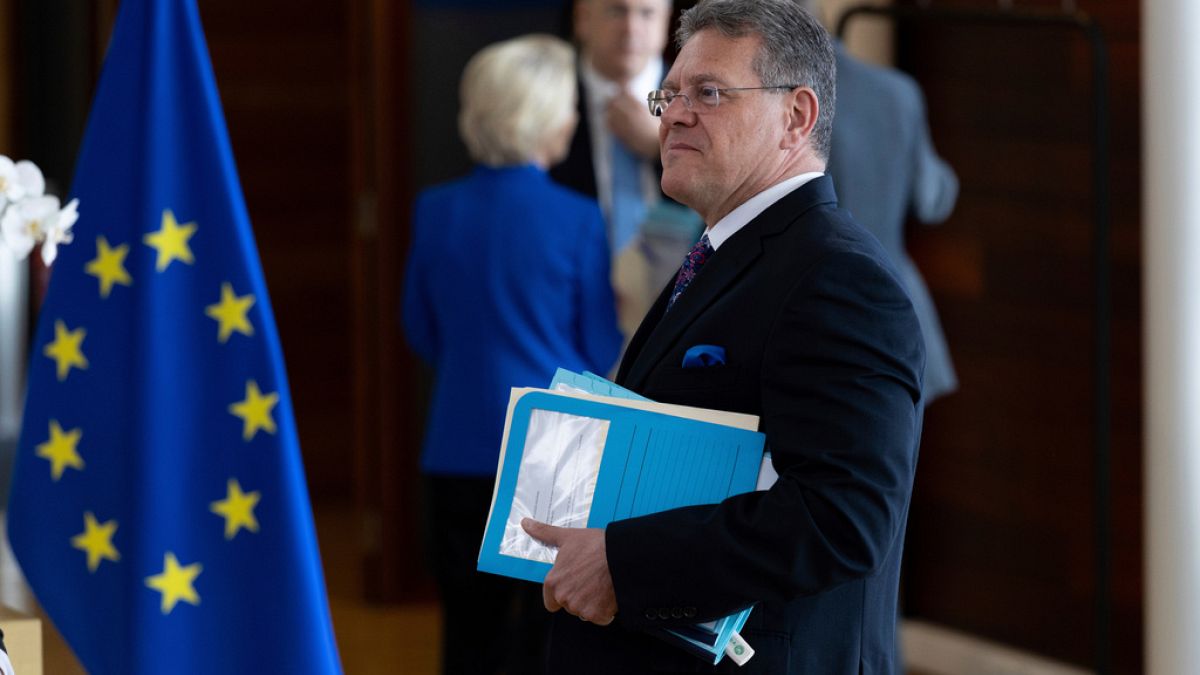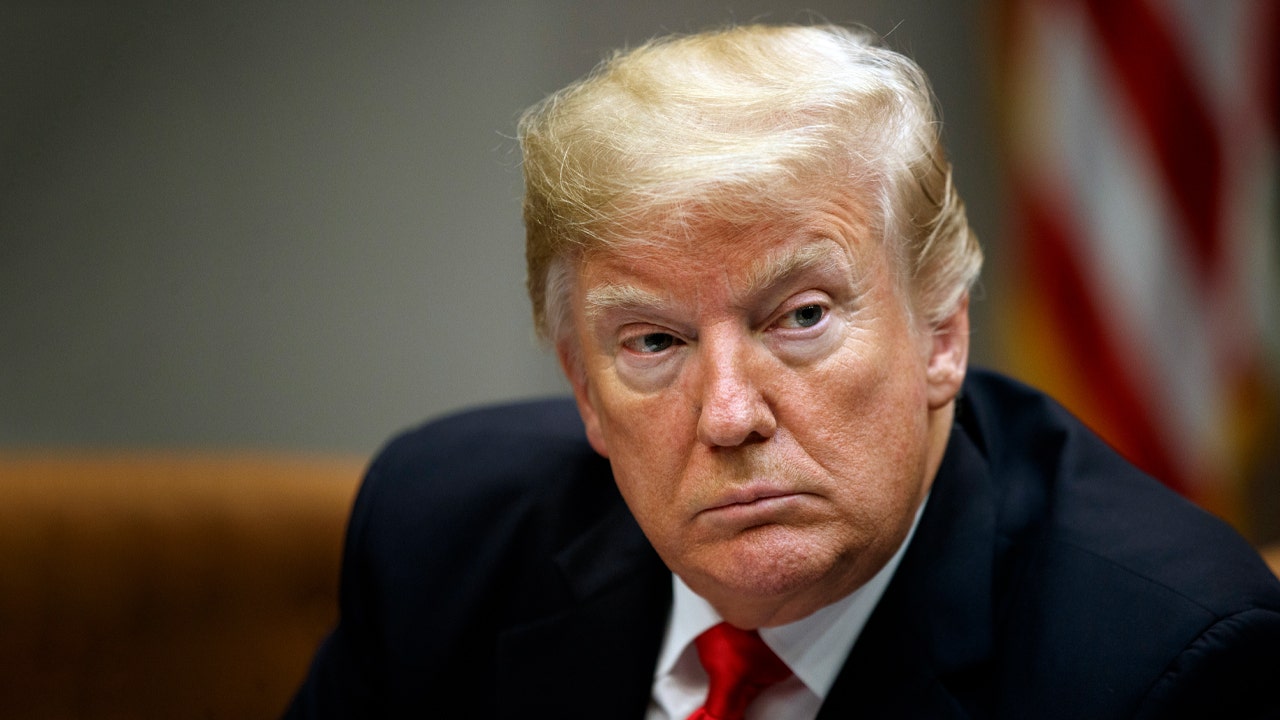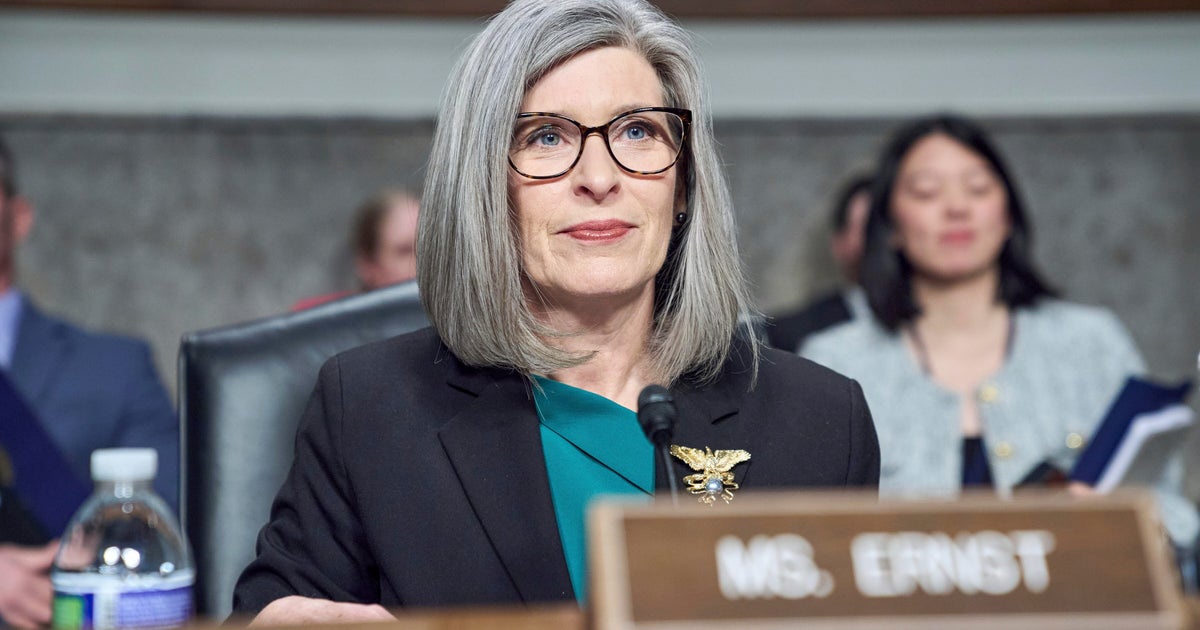World
International terror defendants face longer prison terms than domestic counterparts, new study finds

People convicted of crimes related to domestic extremism face far shorter prison terms than those convicted in international terrorism cases, even when the crimes are similar, a new report on the outcomes of hundreds of federal criminal cases has found.
The first-of-its-kind analysis, completed by terrorism researchers at the University of Maryland, was provided exclusively to The Associated Press. It comes after federal officials and researchers have repeatedly identified domestic violent extremists such as white supremacists and anti-government groups as the most significant terror threat to the U.S. And it follows scrutiny of the outcomes of Jan. 6 cases, including for some Oath Keepers and Proud Boys who received sentences years lower than what was called for by prosecutors and sentencing guidelines.
President Joe Biden has echoed the concerns about domestic terrorism, calling it a “stain on the soul of America” and the “ most urgent terrorism threat ” faced by the country, yet the new analysis shows that on average, domestic extremists receive more lenient penalties.
“This research is significant in confirming empirically what many have long argued: international terrorism cases are sentenced more harshly than domestic cases, even when the conduct is the same, and that these disparities are due to a combination of differences in the law and biases in implementing them,” said Shirin Sinnar, a professor at Stanford Law School, who was not involved in the research but reviewed it at the request of the AP.
Researchers at the University of Maryland’s National Consortium for the Study of Terrorism and Responses to Terrorism, or START, and its Center for Health and Homeland Security examined federal criminal cases between 2014 and 2019 that were brought against people radicalized in the U.S. who were pursuing political, social, economic or religious goals.
International terrorism cases were defined by the researchers as those in which the defendants had links to or were acting in support of terrorist groups or movements based outside the U.S., while domestic cases involved defendants connected to groups or movements that operate primarily inside the U.S.
The analysis looked at 344 cases, including 118 international cases and 226 domestic cases, and found the disparities are caused by multiple factors, including the charges federal prosecutors choose to file, the laws that are on the books, as well as the sentencing decisions made by judges.
Jan. 6 cases are not included in the analysis, which has not yet been peer reviewed. START’s Michael Jensen, a principal investigator of the study, said 2019 was chosen as a cutoff to ensure final outcomes of even the most complex cases were captured. Still, he said, sentencing gaps in the Jan. 6 cases that he’s analyzed also reflect this disparity. Federal prosecutors have even taken the rare step of appealing the sentences of some Jan. 6 defendants, including leaders of the Oath Keepers and Proud Boys, some of whose sentences were years below what federal sentencing guidelines had laid out.
START’s analysis found wide disparities in prison terms for similar conduct, which were most pronounced in certain kinds of cases. The largest was in cases where defendants plotted violent attacks that ultimately failed or were foiled, where international defendants received an average prison sentence of 11.2 years, compared with 1.6 years for domestic defendants.
For violent cases that led to injuries, domestic defendants received on average 8.6 years, versus 34.6 for international defendants. The disparity was smaller, but still significant, in violent fatal attacks with domestic cases at about 28.8 years and international cases at about 39.2 years.
Even terms of supervision after prison showed differences, with people charged in domestic cases getting an average of 3.5 years, compared with more than 19 years supervision for international terrorism defendants. The researchers at START point out that this is despite evidence that the recidivism rate is about 50 percent for domestic extremists — about the same rate for all federal offenders — and “vanishingly low” for international terror defendants.
START controlled for factors already known to contribute to sentencing disparities, such as race, gender, criminal history and the use of so-called sentencing enhancements that increase the possible prison time for certain crimes. Even accounting for these other factors, international defendants still receive harsher punishments on average.
Pete Simi, a Chapman University sociologist who has studied extremism for decades, said the imbalance in treatment of domestic and international cases reflects differences in the broader criminal justice system.
“That imbalance extends well beyond the courts and sentencing but also infects policing and intelligence gathering and analysis,“ said Simi, who was not involved in the research.
Federal law makes a distinction between international and domestic terrorism. The State Department has formally designated dozens of groups operating abroad as foreign terror organizations and even marginal support to such groups that doesn’t result in violence can be punishable by up to 20 years in prison. There is no comparable designation for domestic extremists such as the Proud Boys, Atomwaffen or other groups with a history of violent plots and acts.
Sinnar, who has written extensively about terrorism cases, said the disparities are indicative of numerous biases throughout the criminal justice system.
“At least for Muslims, many cases that might be labeled ‘failed or foiled’ plots were likely plots generated by government informants trying to goad individuals into crimes in the first place, and then foil them in order to arrest the supposed perpetrators,” Sinnar wrote in response to AP questions.
“It’s exactly in these ‘preventative’ cases where you would expect to see the biggest differences — as opposed to the rarer cases that actually lead to fatalities, in which homicide charges are available regardless of the international/domestic distinction.”
Indeed, a federal judge in March freed three men convicted in a post-9/11 terrorism sting after deeming their lengthy sentences “unduly harsh and unjust.” The judge decried the FBI’s role in radicalizing them in a plot to blow up New York synagogues and shoot down National Guard planes, and reduced their mandatory minimum 25-year prison sentences imposed in 2011 to time served plus 90 days.
In the cases studied, terrorism-specific charges and sentencing enhancements that increase prison time were disproportionately applied to international defendants. Chief among those is the material support statute that can only be used for cases linked to international terrorist groups; a related statute that may be used for domestic terrorism was rarely invoked. Federal prosecutors used the international material support charge in 50 percent of international cases; it was just half a percent in domestic ones – a single case.
People charged in violent domestic cases also often faced less serious charges not often associated with crimes of terror, like illegal possession of firearms, the study found. The so-called terror enhancement that increases prison time was used in 60 percent of international cases, compared with just 15.4 percent in domestic ones.
George Varghese, a former national security prosecutor, said prosecutors had been hamstrung by how the law treats international terror differently than domestic extremism, but that courts also bear some responsibility.
“These domestic terrorists are being treated more like run-of-the-mill criminal defendants and receiving sentences far below those of international terrorism defendants,” he said.
One judge, U.S. District Judge Timothy Kelly, imposed terms years below the federal guidelines when he sentenced Proud Boys including ex-national chairman Enrique Tarrio and another leader, Zachary Rehl, both of whom were convicted of seditious conspiracy. The judge said at Rehl’s sentencing that he had assaulted law enforcement by spraying a chemical irritant at them, then lied about it at trial.
Still, Kelly sentenced Rehl to 15 years, half of the lowest amount set out in federal sentencing guidelines, as he mused: “I wonder if I will ever sentence someone to 15 years below the guidelines in my entire career.”
In both Tarrio and Rehl’s cases, the judge said their conduct wasn’t comparable to a scenario he would typically associate with terrorism, such as blowing up a building or taking up arms against United States troops, with an intent to kill.
In the end, terrorism experts and the study’s authors said they didn’t expect Congress to address these issues with new legislation anytime soon, but noted that there are current laws that could be used to help close the gap.
Jensen said the research found prosecutors were not always using all the laws available to them. When domestic extremists were charged with hate crime laws, for example, it wiped out the disparity, he said.
“The problem is, for the six years that we reviewed, the (hate crimes) charge was used 12 times. It was only used in cases that had extraordinary outcomes, in other words people died. Those are not typical terrorism events,” he said. “The use of hate crime laws would absolutely close the gap.”
The disparities are most apparent in lower-profile cases where Jan. 6 rioters assaulted police officers, Jensen told AP. He said he found that the average sentence for those defendants is 4.5 years.
”You can’t find a single case of an international terrorist who injured or hurt people who got less than 20 years in prison,” he said.
___
Reach AP investigative reporters Jason Dearen at jdearen@ap.org and Michelle R. Smith at mrsmith@ap.org
___
Contact AP’s global investigative team at Investigative@ap.org or https://www.ap.org/tips/

World
Asian markets rise as US stock indexes near records amid easing trade tensions
Shares rose early Tuesday in Asia after U.S. stock indexes drifted closer to records, while oil prices extended gains.
Beijing and Washington dialed back trade friction as the U.S. extended exemptions for tariffs on some Chinese goods, including solar manufacturing equipment, that U.S. industries rely on for their own production.
The U.S. Trade Representative extended those exemptions, which were due to expire on May 31, by three months through Aug. 31.
Still, China criticized the U.S. on Monday over moves it alleged harmed Chinese interests, including issuing AI chip export control guidelines, stopping the sale of chip design software to China, and planning to revoke Chinese student visas.
Hong Kong’s Hang Seng gained 1.1% to 23,417.39, while the Shanghai Composite index added 0.3% to 3,356.36.
In Tokyo, the Nikkei 225 advanced 0.6% to 37,683.19.
South Korean markets were closed for a snap presidential election triggered by the ouster of Yoon Suk Yeol, a conservative who now faces an explosive trial on rebellion charges over his short-lived imposition of martial law in December.
Australia’s S&P/ASX 200 was up 0.7% to 8,475.50.
In Taiwan, the Taiex gained 1.4%.
On Monday, U.S. stock indexes drifted closer to their records following a stellar May, Wall Street’s best month since 2023.
The S&P 500 rose 0.4% to 5,935.94 after erasing an early loss from the morning. The Dow Jones Industrial Average added 0.1% to 42,305.48. The Nasdaq composite climbed 0.7% to 19,242.61.
Indexes had fallen close to 1% in the morning following some discouraging updates on U.S. manufacturing. President Donald Trump has been warning that U.S. businesses and households could feel some pain as he tries to use tariffs to bring more manufacturing jobs back to the country, and their on-and-off rollout has created lots of uncertainty.
But stocks rallied back as the day progressed. Nvidia climbed 1.7%, and Meta Platforms rose 3.6%, for example.
Oil prices have gained as attacks by Ukraine in Russia raise uncertainty about the flow of oil and gas around the world.
Early Tuesday, U.S. benchmark crude oil was up 62 cents at $63.14 per barrel. Brent crude, the international standard, picked up 57 cents to $65.19 per barrel.
Markets took in stride fresh salvos between the world’s two largest economies, just a few weeks after the United States and China had agreed to pause many of their tariffs that had threatened to drag the economy into a recession.
That followed President Donald Trump’s accusation at the end of last week, where he said China was not living up to its end of the agreement that paused their tariffs against each other.
Trump on Friday told Pennsylvania steelworkers he’s doubling the tariff on steel imports to 50% to protect their industry, a dramatic increase that could further push up prices for a metal used to make housing, autos and other goods. That helped stocks of U.S. steelmakers climb. Nucor jumped 10.1%, and Steel Dynamics rallied 10.3%.
On the losing side of Wall Street were automakers and other heavy users of steel and aluminum. Ford fell 3.9%, and General Motors reversed by 3.9%.
Lyra Therapeutics soared nearly 311% for one of the market’s biggest gains after reporting positive late-stage trial results of an implant to treat chronic sinus inflammation in some patients.
In the bond market, Treasury yields rose as worries continue about how much debt the U.S. government will pile on due to plans to cut taxes and increase the deficit.
The yield on the 10-year Treasury climbed to 4.44% from 4.41% late Friday and from just 4.01% roughly two months ago. That’s a notable move for the bond market.
Besides making it more expensive for U.S. households and businesses to borrow money, such increases in Treasury yields can deter investors from paying high prices for stocks and other investments.
Yields had dipped briefly in the morning, before rallying back, following the updates on manufacturing, which suggested that effects of Trump’s tariffs are taking root in the economy.
A report from S&P Global on manufacturing came in better than expected, though uncertainty caused by tariffs has worries high about supplier delays and rising prices.
Also early Tuesday, the dollar rose to 143.10 Japanese yen from 142.71 yen. The euro slipped to $1.1438 from $1.1443.
___
AP Business Writers Stan Choe and Matt Ott contributed.
World
Ukraine-Russia peace talks yield no ceasefire, Zelenskyy warns Putin should not be 'rewarded'

NEWYou can now listen to Fox News articles!
The second round of peace talks between Ukraine and Russia in Turkey once again did not yield any ceasefire results on Monday and Ukrainian President Volodymyr Zelenskyy reiterated his demand that Russian President Vladimir Putin “must not receive any reward for [his] war.”
Despite an apparent memorandum of terms given to Ukraine by the Russian delegation, Moscow once again refused to agree to an unconditional ceasefire defined by a U.S. proposal and already agreed to by Kyiv.
Following the talks – which appeared to last for less than three hours, though some reporting noted they lasted for less than one hour – the head of the Ukrainian delegation in Istanbul, Defense Minister Rustem Umerov, said his Russian counterparts not only refused ceasefire terms, but also to a meeting between Zelenskyy and Putin.
UKRAINE, RUSSIA MEET FOR PEACE TALKS IN ISTANBUL AFTER EXPLOSIVE WEEKEND
Turkish Foreign Minister Hakan Fidan chairs Turkiye-Russia-Ukraine Trilateral Meeting in Istanbul, Turkiye on Jun. 02, 2025. (Murat Gok/Anadolu via Getty Images)
A massive 6,000 to 6,000 prisoner exchange was agreed to and will secure the release of sick, seriously injured prisoners and those under the age of 25.
Ukraine also handed over a list containing the names of several hundred children that Russia illegally deported and relocated from occupied territories of Ukraine, though it is unclear if Russian authorities have agreed to return any of the children, many of whom have been “adopted” by Russian parents.
“The key to lasting peace is clear – the aggressor must not receive any reward for war. Putin must get nothing that would justify his aggression,” Zelenskyy said in a post to X following his address at a NATO security summit in Lithuania. “Any reward would only show him that war pays off.”
Zelenskyy’s comments and the peace talks came just one day after a surprise drone strike dubbed “Operation Spiderweb” by Ukraine inside Russia in which Moscow’s military complex was targeted, and roughly a third of it’s cruise missile carriers were apparently destroyed.
Zelenskyy said the attack “seriously weakened their military” and “showed what modern war really looks like and [that’s] why it’s so important to stay ahead with technology.”
ZELENSKYY SPEAKS WITH TRUMP, ALLIES AFTER RUSSIA PEACE TALKS BROKER NO CEASEFIRE

This image taken from video released Jun. 1, 2025, by a source in the Ukrainian Security Service shows a Ukrainian drone striking Russian planes deep in Russia’s territory. (Ukrainian Security Service via AP)
The Ukrainian president did not comment further on the substance of the talks. Ukraine has been given one week to review Russia’s terms for a ceasefire.
Ukraine’s terms first call for a 30-day land, air and sea-based ceasefire before Kyiv, alongside Washington and European allies, would then begin further negotiations with Moscow, according to a report by Reuters, which apparently obtained a copy of the conditions.
The document also reportedly states that the current location of the front line will be the starting point for negotiations about territory, and calls for no restrictions on Ukraine’s military, reparations for Ukraine and a refusal by the international community to acknowledge Russian sovereignty over the illegally occupied lands.
Zelenskyy also reiterated his position on Monday that Putin should not be allowed to dictate which countries are allowed to enter the NATO alliance, which Russia has repeatedly said is one of its demands over Ukraine.
Granting Ukraine NATO access would all but officially bar Russia from ever re-invading Ukraine as it would grant Kyiv Article 5 protections, which confirm an attack on one NATO ally will be treated as an attack on all NATO allies and responded to accordingly.

(L-R) Denmark’s Prime Minister Mette Frederiksen, Ukrainian President Volodymyr Zelenskyy, NATO Secretary General Mark Rutte, Lithuania’s President Gitanas Nauseda, Poland’s President Andrzej Duda and Romania’s President Nicusor Dan attend a joint press conference during a summit with the leaders of NATO’s eastern and Nordic members (B9 and Nordic countries) on Jun. 2, 2025, in Vilnius, Lithuania. (PETRAS MALUKAS/AFP via Getty Images)
“If Putin is allowed to decide who joins NATO, where NATO infrastructure can or can’t be, then Russia’s appetite for war will only grow. Our shared goal is the opposite – to completely end Russia’s hunger for aggression,” Zelenskyy said.
“Strong decisions are needed. Decisions for Europe, not for Putin. We all need to work together to make this really happen. And it’s doable,” he added.
A future meeting between Ukraine and Russia has yet to be announced.
World
EU trade chief to meet US counterpart in Paris amid tariff tensions

Published on •Updated
EU trade Commissioner Maroš Šefčovič will meet his US counterpart Ambassador Jamieson Greer on Wednesday on the sidelines of an OECD meeting in Paris following a high-level gathering of EU and US experts in Washington on Tuesday against rising tensions over US customs duties.
The Commission is hoping to rekindle negotiation with the US a week after EU Commission President Ursula von der Leyen and US president Donald Trump spoke on the phone, despite Trump’s subsequent decision on 30 May to slap 50% tariffs on EU steel and aluminium.
“The EU in good faith paused its countermeasures on 14 April, to create space for continued negotiations, and following the call between president Ursula von der Leyen and president Donald Trump both sides agreed to accelerate the pace of talks,” Commission spokesperson Olof Gill said on Monday, acknowledging however that Trump’s last announcement on steel and aluminium undermined the Commission’s “ongoing efforts to reach a negotiated solution with the US”.
The Commission has suspended until 14 July a list of countermeasures targeting US products after Trump decided on a 90-Day pause in the trade dispute he launched against his partners across the globe. But the Commission could decide to move forward with those countermeasures, it said.
A second list of US product is also open to consultation from industry until 10 June, when EU member states will adopt them.
“If no mutually acceptable solution is reached, both the existing and the possible additional measures will automatically take effect on 14 July or earlier if circumstances require,“ Gill said.
Šefčovič has already travelled to Washington three times to meet with his US counterparts, but his efforts have so far failed to break the deadlock.
The US and the EU exchanged proposals to begin negotiations, but both sides have dismissed the other’s offers. It wasn’t until EU and US leaders spoke by phone that talks were able to move forward—until President Trump announced new tariffs on steel and aluminium at the end of last week, putting the negotiations at risk once again.
The US currently imposes 25% tariffs on EU steel and aluminium, 25% on cars and 10% on all EU imports. Several investigations in pharma, semiconductors or aircrafts could also lead to more US tariffs on EU goods.
-

 Business1 week ago
Business1 week agoPlastic Spoons, Umbrellas, Violins: A Guide to What Americans Buy From China
-

 Movie Reviews1 week ago
Movie Reviews1 week agoMOVIE REVIEW – Mission: Impossible 8 has Tom Cruise facing his final reckoning
-

 Movie Reviews1 week ago
Movie Reviews1 week ago‘Magellan’ Review: Gael Garcia Bernal Plays the Famous Explorer in Lav Diaz’s Exquisitely Shot Challenge of an Arthouse Epic
-

 Technology1 week ago
Technology1 week agoThe oldest Fire TV devices are losing Netflix support soon
-

 Maryland1 week ago
Maryland1 week agoMaryland, Cornell to face off in NCAA men’s lacrosse championship game
-

 West1 week ago
West1 week agoRiley Gaines says 'literal human feces' thrown in protest of Turning Point USA at University of Washington
-

 Tennessee1 week ago
Tennessee1 week agoTennessee ace Karlyn Pickens breaks her own record for fastest softball pitch ever thrown
-

 World1 week ago
World1 week agoAustralia begins cleanup after floods kill 5, strand thousands

















